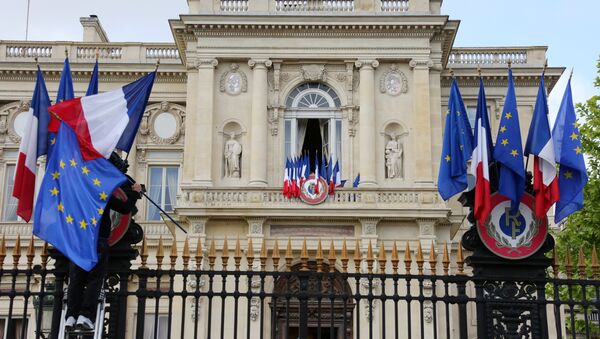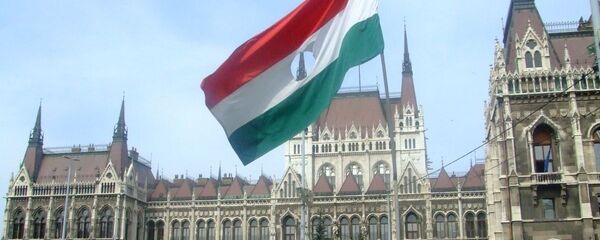France clinched the top spot ahead of the UK, which was awarded second place for the second year running. Last year's leader, the US, slipped to third place in this year's ranking because of "a combination of strong objective soft power metrics and unfavorable polling results," the CPD said.
The concept of "soft power" was coined by Harvard University political scientist Joseph Nye in the late 1980s, to describe a state's ability to enforce its own foreign policy interests by appealing to other states in an effort to shape their long-term attitudes.
Christian Harbulot, director of the Paris-based "l'Ecole de Guerre Economique," (Economic Warfare School), told Sputnik France that the "soft power" battle is just as ruthless as that of "hard power," despite the name.
"In my opinion, this is an inaccurate expression. The concept of soft power is an extremely sugarcoated way of viewing this subject. In the 1990s, prior to the popularization of this concept …, so-called social learning was considered, based on a number of humanistic or humanitarian principles of particular countries or economies. They developed a strategy of conquering the market which was, of course, not made public."
Harbulot said that the kind of force used by France and other countries to conquer markets around the world "is certainly not a 'soft force,' because when you interpret it in terms of the forces which are used, it is clear that it isn't true."
"There is a winner and a loser. The winner is the one who controls the situation, extends a helping hand, promotes the implementation of certain principles and, in the final analysis, is not seen as a strategist but rather as someone who is making an effort to achieve a specific goal."
"In France today they are congratulating themselves, they are all pleased that France is at the top of the soft power list. It creates an appearance but it doesn't make French people richer, makes very little difference to employment, it doesn't strengthen our industry. It doesn't orient us toward new goals, particularly in the digital economy. I would say we are in a miserable position."
When he used the term, Joseph Nye contrasted it with the hard or command power of ordering others to do what you want. Harbulot told Sputnik that non-governmental organizations (NGOs) represent another powerful force used to influence the development of countries.
"Today, there is a new form of power which is neither military presence, nor diplomacy, but is based on the art of war, to some extent. You have to pretend to be a person who wants to do good, to extend a helping hand. The best way to disguise this kind of influence, which is based on 'social learning,' is to create an NGO or foundation. This is a forceful player in civil society which strives to draw as little attention as possible," the analyst said.



